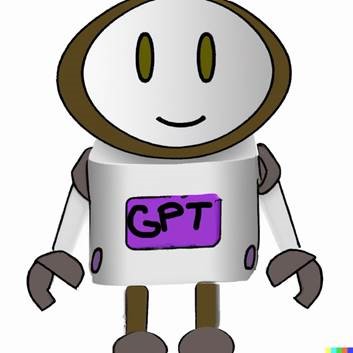Making the Most of MyCourses: Best Practices Badge
Title: Making the Most of MyCourses: Best Practices AY2023-24
Description:
The Making the Most of MyCourses workshop series presents pedagogical best practices for course design regardless of instructional modality (online, hybrid, hyflex, face-to-face) combined with MyCourses best practices.
To earn the Making the Most of MyCourses: Best Practices AY202324 badge faculty and staff must provide evidence of a minimum of 20 of 27 possible artifacts. Participation in associated workshops is highly recommended but not required. Workshops will be recorded and available for faculty and staff to review at their discretion.
Faculty and staff earning the Making the Most of MyCourses: Best Practices AY2023-24 badge exhibit a commit to implementing best practices in course design and technology use. As such faculty and staff, may also choose to attend additional, optional workshops that are primarily focused on using specific MyCourses features in-depth such as but not limited to the Quiz tool, Assignment tool, Content tool, and Grade Book.
Why should faculty and staff earn this badge?
Faculty and staff should consider earning this badge to:
- participate in the development of best practice and standards-based courses that create consistency in course design across the college.
- share your commitment to expanding high-quality online, hybrid, face-to-face, and hyflex course offerings in support of the strategic plan.
- participate in the conversation around designing courses and leveraging technologies to promote student success.
- provide evidence of best practice implementation of Quality Matters (QM) using GGC technologies such as MyCourses, Kaltura, and more.
- gain insight into the technologies and services available at GGC for faculty and students to support teaching and learning.
Expiration:
The Making the Most of MyCourses badge will expire approximately 3 years after it is awarded.
The Making the Most of MyCourses: Best Practices AY2023-24 badge will be issued between September 1, 2023 and May 31, 2024. This badge will expire on June 1, 2027.
Criteria:
Provide 20/27 artifacts as evidence that best practices presented in the Making the Most of MyCourses series were implemented in an Academic Year 2023-2024 MyCourses course.
Workshop Topics and Schedule
Spring Workshops
- MyCourses: Leveraging digital content from the Kaufman Library
Wednesday, January 31st, 2024, 10:00 am – 10:45 a.m.
Zoom Session - MyCourses: Fostering engagement with assigned readings
Wednesday, February 14th, 2024, 10:00 am – 10:45 a.m.
Zoom Session - MyCourses: Fostering engagement with online lectures and videos
Wednesday, March 20th, 2024, 10:00 am – 10:45 a.m.
Zoom Session - MyCourses: Assessing students
Wednesday, April 10th, 2024, 10:00 am – 10:45 a.m.
Zoom Session
Fall Workshops
- MyCourses: Designing a supportive and easy to navigate course
Wednesday, September 6, 2023, 10:00 am – 10:45 a.m.
Zoom Session - MyCourses: Designing an easy to navigate syllabus
Wednesday, September 27, 2023, 10:00 am – 10:45 a.m.
Zoom Session - MyCourses: Incorporating time management strategies
Wednesday, October 18, 2023, 10:00 am – 10:45 a.m.
Zoom Session - MyCourses: Communicating assignment and activity expectations
Wednesday, November 1, 2023, 10:00 am – 10:45 a.m.
Zoom Session - MyCourses: Humanizing your [online, hybrid, or face-to-face] course
Wednesday, November 15, 2023, 10:00 am – 10:45 a.m.
Zoom Session
Supplementary MyCourses Workshops
Faculty and staff may also wish to attend supplementary MyCourses workshops to increase familiarity with features and become more acquainted with recent updates.
Steps to Earn your Badge
- Attend Making the Most of MyCourses workshops or review recordings.
- Implement recommendations in any AY2024 MyCourses course.
- Login to MyCourses and locate the Center for Teaching Excellence: Badges course.
- Select Assignments from the course navigation bar.
- Locate the Making the Most of MyCourses AY2024 Evidence assignment and submit your evidence. See options below for submitting evidence.
- Information Technology and Center for Teaching Excellence will review evidence and award badges using a rubric.
- Claim your badge by selecting Awards on the course navigation bar in the Center for Teaching Excellence: Badges course.
- Share your achievement be selecting the share option for your badge. You can share your badge in a variety of ways, including on LinkedIn and in your Email Signature.
There are two ways to submit evidence that you have implemented the best practices discussed in the Making the Most of MyCourses series
- Provide screenshots from any AY2024 course that show how you implemented the best practices discussed in the Making the Most of MyCourses series. The screenshots will be considered as evidence in order to earn your Making the Most of MyCourses: AY2024 badge. Each screenshot should be added as an attachment to the Making the Most of MyCourses AY2024 Evidence assignment in the MyCourses: Center for Teaching Excellence badging site.
- If the evidence exists in a single MyCourses course, provide the course name in text box for the Making the Most of MyCourses AY2024 Evidence assignment in the MyCourses: Center for Teaching Excellence badging site.
| Workshop Title | Evidence Artifact 1 | Evidence Artifact 2 | Evidence Artifact 3 |
| MyCourses: Designing a supportive and easy to navigate course | The Content tool’s Table of Contents shows: At least 4 modules including: a Welcome module, 2 modules that include content, activities, and assessments, and a Wrap-up module The 2 modules that include content, activities and assessments should use a similar structure to ensure consistency from module to module | The Welcome module includes: A welcoming message from the instructor A syllabus (deconstructed or word or PDF) An attendance verification activity | A welcome to the course announcement is available in the Announcement tool that includes: The use of the {firstname} replacement string to personalize the announcement Language that includes embedded links directing students to the syllabus and other content housed in the Welcome module An embedded video from the instructor welcoming students to the course |
| MyCourses: Designing an easy to navigate syllabus | The Welcome module includes a deconstructed syllabus that includes: The deconstructed syllabus as a submodule within the Welcome module Each major section of the “syllabus” should be its own content item within the submodule | The Welcome module’s deconstructed syllabus includes: The content for the syllabus presented as a HTML file (not Word or PDF files) The HTML files use the HTML templates provided within the HTML editor | An intelligent agent set to nudge a student who has not viewed a particular content item contained within the deconstructed syllabus submodule is available. This can include an intelligent agent set to nudge/remind a student to view syllabus content such as attendance policies, grading policies, or tutoring information |
| MyCourses: Communicating assignment and activity expectations | A module that displays a TILTed assignment/activity content item as well as a content item immediately following the TILTed content item that is linked to an assignment/activity such as a quiz, assignment dropbox, or discussion is available. | The TILTed assignment/activity is created as HTML content. The HTML content must include the purpose, task, and criteria. | The TILTed HTML content is formatted using a HTML template. |
| MyCourses: Incorporating time management strategies | The Calendar tool includes all major due dates (assignment/assessment/activities), meeting times, major milestones (e.g. last day to drop), midterm and final exam dates. | The Content tool’s Course Schedule includes all entries pulled from the Calendar tool. | The deconstructed syllabus includes a content item that describes time management strategies/tools such as: recommendations for setting MyCourses notifications, downloading the Pulse app, and using the subscribe to calendar feature complete with links to appropriate knowledgebase articles. |
| MyCourses: Humanizing your course | The syllabus or welcome message provides students with assistance on setting a preferred first name and instructions for updating and/or sharing personal pronouns in MyCourses. | There is a survey available in the Welcome module that asks students to share: 1) Why they are taking the course 2) What they hope to get out of the course | There is an end-of-course or end-of-module survey available that asks students to provide feedback on course design. The survey should include questions that ask students to provide feedback on what went well, what did not go well, and suggestions they have for future students. |
| MyCourses: Fostering engagement with assigned readings | The Calendar tool shows due dates for reading assignments. | The syllabus or welcome message includes student best practices for readings such as: Recommendation to add time to the calendar/study plan for reading via MyCourses and/or Claw Mail Recommendation to chunk reading sessions in to 45 minute or less sessions Metacognitive Reading Strategies | There is a reading assignment (ungraded or graded) available via the Assignment tool, Survey tool, Discussion tool or Perusall. |
| MyCourses: Fostering engagement with online lectures and video | The Calendar tool shows due dates for viewing video/ video assignments. | The Calendar tool shows meeting dates for Zoom (or similar) meetings (synchronous class sessions or appointments) | A video assignment (ungraded or graded) is available via the Assignment tool, Discussion tool or Kaltura Video Quiz. |
| MyCourses: Leveraging digital content from the Kaufman Library | The syllabus includes information regarding availability of Kaufman Library resources such as: Accessing Library Databases from on and/or off Campus Ask a Librarian LibGuides | The course includes digital video content from sources like Films on Demand, Swank, or Kanopy in a Content module. This might include embedding video in a HTML file, discussion, or assignment. | The course includes electronic texts or articles in a Content module. This might include linking the text in a HTML file, discussion, or assignment. |
| MyCourses: Assessing students | A low stakes, practice assessment is available during the first week of the semester that includes proctoring setup, if applicable. The practice assessment may be created using the Quiz, Assignment, or Discussion tool. | The syllabus includes information on proctoring requirements or expectations related to the use of artificial intelligence (AI) enabled technologies. | The course includes a rubric created using the Rubric tool. The rubric is linked to TILTed information AND the rubric is attached to an assignment created using the Assignment or Discussion tool. |
Submission Deadline:
May 31, 2024
Submission Protocol:
Complete the Making the Most of MyCourses AY2024 Evidence assignment in the MyCourses: Center for Teaching Excellence badging site.






